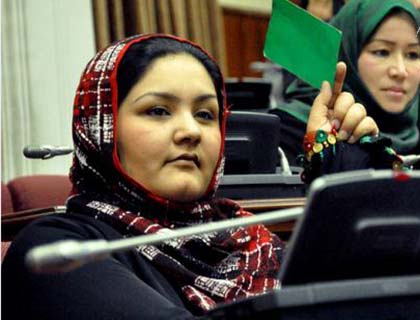KABUL - The Wolesi Jirga (WJ), lower house of the parliament, on Monday unanimously approved a draft law against usurpation of government and private lands, a major problem facing the war-torn country.
The house commission on monitoring government activities submitted the three-chapter law, having 17 articles, to the assembly for endorsement today.
Fazal Azim Zalmai Mujaddedi, the commission head, said a key objective was to provide assistance to judicial organs in wresting back illegally grabbed lands and preventing the seizure of such properties in future.
“Based on the proposed law and in light of other regulations, the government reserves the right to charge lease on the land and properties unlawfully seized and fine and imprison grabbers,” he told the house.
Mujaddedi revealed regional warlords and government officials had illegitimately seized more than half a million acres of land across the country. “The practice continues apace, thanks to corruption in state institutions and the absence of an effective law in this regard.”
In response to calls for exposing the accused, Mujaddedi said the commission had prepared a detailed report on land grab that would be placed soon before the legislators.
Sher Wali Wardak, the panel’s deputy head, told Pajhwok Afghan News the report contained names of 15,000 individuals who had illegally occupied government and private properties. He claimed the grabbers included ministers, governors, police chiefs, senior government officials and tribal elders.
But lawmaker Abbas Ibrahim said the house panel could expose land sharks, particularly top government officials. “Only small-time land grabbers and low-level government servants will be named.”
All 125 members present during the session raised their green cards, supporting approval of the proposed law, which will be sent to the Meshrano Jirga. When approved by the upper house, the draft will go to the president, who will sign it into law. (Pajhwok)

